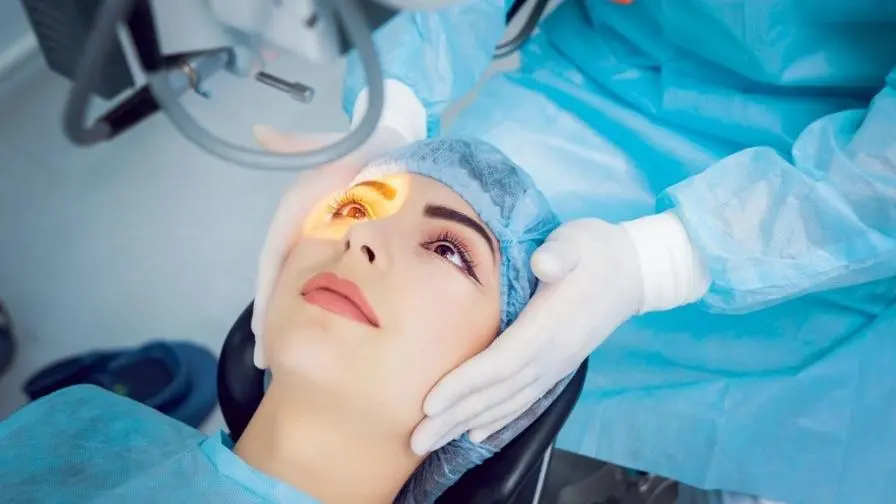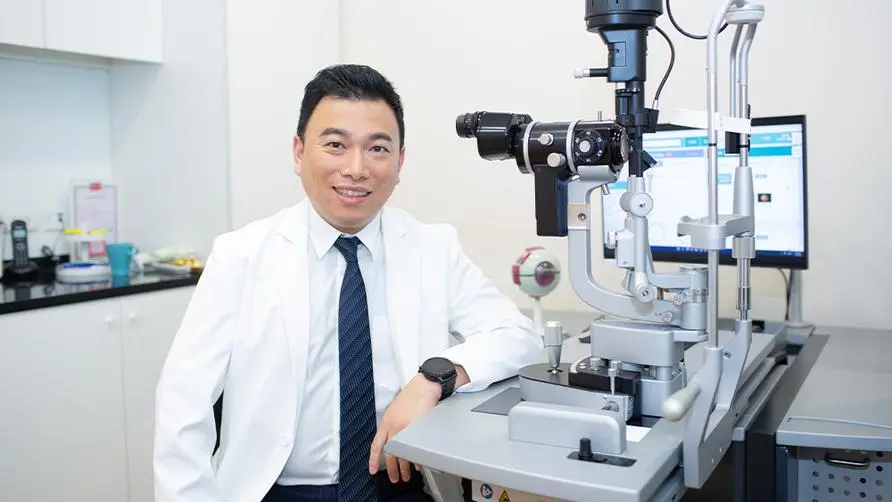The more expensive the artificial lens, the better! 5 things you must know before surgery to maintain "middle distance vision"

Cataracts, which are common among modern people, can cause vision loss and blurred vision, seriously affecting the quality of life. Currently, the best treatment is surgical replacement of intraocular lenses. However, there are many types of artificial lenses on the market, including single focus, multifocal, extended focus, full focus, etc. How to choose the most suitable artificial lens?
Analyzing the advantages and disadvantages of artificial crystal lenses to choose the most suitable one
“The more expensive the intraocular lens, the better!” Zeng Chuilian, an attending physician at the Department of Ophthalmology, Kaohsiung Veterans General Hospital, emphasized that the principle of choosing intraocular lenses is based on personal eye conditions and eye usage habits. For example, a monofocal intraocular lens can provide clear vision at distance, but poor mid- and near-distance vision, so reading glasses must be worn; a multifocal intraocular lens can provide clear vision at distance and near distance, but the mid-distance vision is slightly poor and average. Generally speaking, the overall visual quality is slightly worse than that of monofocal intraocular lenses, especially when the pupils are large or at night, there may be some glare.
“The extended focus intraocular lens combines the advantages of single focus and multifocal.” Zeng Chuilian explained that the extended focus intraocular lens provides clear vision at mid-to-long distances and meets the needs of daily life such as computer playing, chopping vegetables, cooking, and housework; however, For near vision, such as reading mobile phones and newspapers, you still need to wear reading glasses.
Zeng Chuilian specifically suggested that some professional drivers, such as taxi, bus, and truck drivers, should give priority to extended-focus intraocular lenses, because when driving, you need to read road signs and road conditions, and also pay attention to the speed and rpm on the dashboard to avoid speeding. " Extended focus intraocular lenses provide both long-distance and mid-distance vision needs for quick switching, clear and sharp mid-distance vision, and are less prone to night glare, especially when driving at night."
Unfiltered blue light can maintain normal biological clock
Is blue light harmful to your eyes? According to animal experiments, direct irradiation of blue light into the eyes of mice can cause retinal damage; however, no human experiments have confirmed that blue light is harmful to the eyes. Zeng Chuilian believes that although blue light is relatively high-energy visible light, whether it will cause damage to the eyes is related to the exposure time, irradiation distance and intensity. Generally speaking, normal and limited use of 3C products will not cause retinal damage.
In fact, blue light is everywhere. Blue light is produced by anything that emits light, such as sunlight, lights, 3C products, etc. The wavelength of visible light in daily life is between 400 and 700 nanometers, and blue light has a wavelength of 400 and 500 nanometers. visible light.
However, blue light mainly affects the secretion of hormones. Therefore, when choosing crystals, if you choose a crystal material that retains healthy blue light, it can regulate melatonin in the biological clock. For example, during the day, there are more opportunities to be exposed to blue light, which keeps people awake, energetic, and able to focus on work; at night, when there is less exposure to blue light, melatonin begins to be secreted, helping to improve sleep quality.
Zeng Chuilian said that artificial lenses do not actually need to specifically filter blue light. Blue light can provide 35% of dark-light vision, help improve night vision, and regulate circadian rhythm. It not only makes work more energetic during the day, but also has clear vision at night without affecting the quality of sleep. Extended focus range Artificial lenses happen to have the property of retaining healthy blue light.
Five steps to choose an artificial lens
Ideally, artificial lenses should last a lifetime. Zeng Chuilian suggested to use the “5-step selection process” to select the most suitable intraocular lens:
The lens material has been clinically proven for a long time, such as the lens will not degenerate and the optical quality is stable;
The lens design can reduce secondary cataracts occurs, avoiding the need for another laser treatment;
Corrects the most spherical aberration, and aspherical lenses can provide sharper vision;
Low refraction and low dispersion materials help improve visual contrast;
No need Deliberately filters blue light to improve night vision and maintain circadian rhythm.





